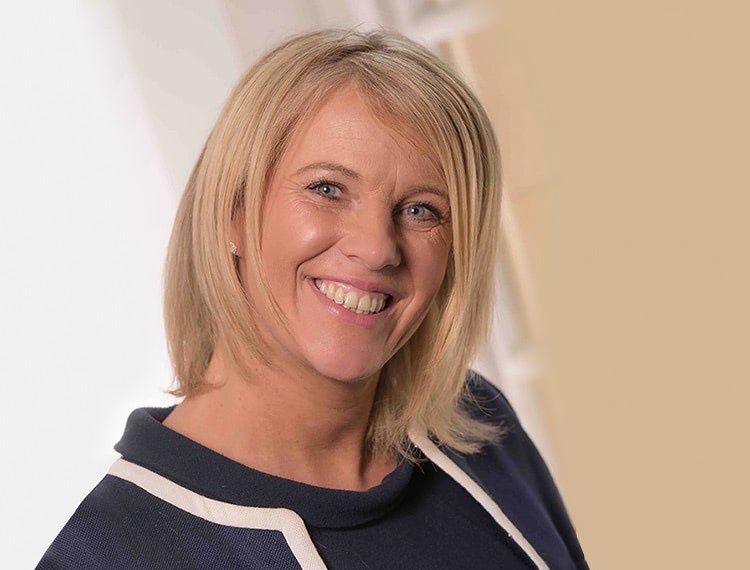The Future of End Point Assessment, plus my own reflections

I started my own End Point Assessment (#EPA) journey when I joined Innovate Awarding (@Innovate_Awards) as Managing Director in June 2017, so this feels like an ideal place to start my reflections:
The Institute for Apprenticeships was just being formed
When I look back The Institute for Apprenticeships – IFA (now The Institute for Apprenticeships and Technical Education IFATE) had just being formed and ESFA were clear on the expectations of EPA.
This expectation was to independently assess the knowledge, skills and understanding of an apprentice to ensure they are occupationally competent.
I managed to locate a video by Janet Ryland from ESFA speaking with FE News in March 2017 where she was clear it was critical that End Point Assessment Organisations (EPAO) had proven assessment expertise coupled with assessors who had up to date occupational understanding.
The message was very clear – you shouldn’t go into becoming an EPAO lightly.
Janet Ryland went on to say:
“A lot of preparation is required, along with the infrastructure and assessment expertise.
“You have to be focused on Quality to meet the bar – this is fundamental to meeting the criteria”
At this time the register of EPAOs had 40 approved organisations covering 80 apprenticeship standards. Fast forward to October 2020 and the register currently hosts 306 EPAOs across 595 standards.
I will come back to this point later as we consider quantity vs quality.
Understanding Assessment Plans
So back to 2017. As someone who has worked in assessment since 1996 and with a team who have worked in Awarding Organisations for many years, I felt we were well equipped to enter into this new unknown world of EPA, but I am the first to admit, it presented us with challenges that we hadn’t necessarily experienced previously.
- The first being our interpretation of assessment plans. In the early days, plans had been written in a way which made it difficult to fully understand the requirements on areas such as grading, duration of assessments and mode of assessments – this led to concerns on consistency, particularly where we had multiple EPAOs.
- The second area of challenge was defining the EPA Journey and responsibilities of a Provider and EPAO once Gateway had passed – who should take ownership of the Apprentice?
Forwarding to 2020, we have certainly seen a vast improvement in the way assessment plans are written and the roles of both the Provider and EPAO have been clearer as we have learnt together ‘on the job’.
Ensuring Assessor Capacity and Availability
We then fast forward a year to 2018 when reality really hit. This is when assessments for EPA started taking place – albeit in small volumes. This is where our next set of hurdles to overcome arose.
It was really hard to get visibility of when apprentices would be entering into Gateway so planning to ensure assessor capacity and availability became a hot topic amongst EPAOs and the wider community.
We also started having External Quality Assurance visits and it was clear that a single approach was not being taken to quality assurance across EQA Organisations (or EQAPs as we love an acronym in this sector).
So how are we faring now? It would be fair to say that visibility of apprentices remains a problem when planning for EPA and is an area we still need to focus on when working with Providers.
On a positive note, the introduction of the EQA Framework and the decision to have Ofqual and Office for Students (OFS) as the EQAPs for Apprenticeships has certainly been welcomed by many EPAOs.
Quantity vs Quality
2019 the year where EPA volume started ramping up as well as volume of standards approved and EPAOs on the register. As volumes increased this highlighted where some assessment components within assessment plans were not fit for purpose and some of the processes to support these were not workable.
Reviews of such assessment plans started taking place and we have seen improved quality of later plans that have clearly taken learnings into consideration.
What we still need to work on and improve is version control when reworked versions of assessment plans come on board. What is the channel for this? How do we ensure consistency of application?
One I hope Ofqual will be able to support on as Apprenticeships standards transition to them.
Transition of EQA to Ofqual and OFS
So that brings me to the here and now 2020. I am not going to focus on flexibilities to assessments or the wider implications of the pandemic but areas that are currently at the forefront of my mind when looking at the wider EPA arena.
This year we will see transition of EQA to Ofqual and OFS and whilst this welcomed but what does this mean to those EPAOs who are not currently regulated and how do we support the retention of quality and the understanding of the commitment to working within a regulated market?
I think many are focused on the volume of EPAOs where I think the question should go back to the original intention as detailed by ESFA – It is critical that EPAOs have assessment expertise and assessors to ensure occupational competence.
Is this the current state of play when we review those on the EPAO register?
The Future of Apprenticeships
A number of standards are being reviewed at present – how do we ensure this is controlled whilst allowing innovation and control? And lastly a recent consultation took place on the funding of Apprenticeships including EPA – how do we ensure the true costs of delivering high-quality EPA is understood?
It has been a journey which has been full of challenge, but also reward, particularly when we hear positive stories from apprentices and employers and we continue to learn and improve to provide a better EPA experience.
We do still have areas to improve and challenges to overcome and if you would like to hear more about how I am working with others to raise these and promote that improvement, please join me on the EPA stage at The Future of Apprenticeships conference on 5th November where I will be joined by the IFATE, ESFA, Ofqual as well as other EPAOs to discuss these topics.
Charlotte Bosworth, Managing Director, Innovate Awarding
Charlotte Bosworth is a co-anchor on the EPA stage at the Future of Apprenticeships Conference on 5th November.












Responses